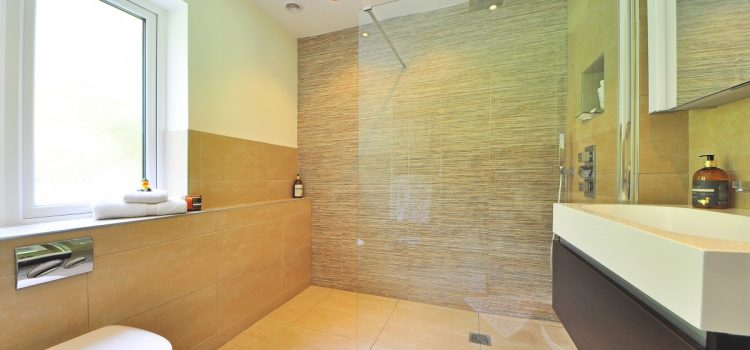
How to Choose the Right Shower Materials
Contents
Shower materials: criteria to consider
Materials for shower trays
Materials for the floor of a walk-in shower
Materials for shower walls and enclosures
Shower materials: prices and points of sale
For walls and floors, the shower, whether classic or walk-in, uses various materials to make it a place where the joy of water and the eye’s pleasure go hand in hand. However, it is necessary to buy these materials considering many criteria—explanations to help you choose your shower materials.
Shower materials: criteria to take into account
The choice will depend on your desires regarding decoration and your budget because the price of materials for the shower varies considerably. Then come the criteria of resistance, safety, and maintenance.
Resistance
In the shower, the floor and wall coverings must be resistant to moisture and water splashes, scratches and impacts, and chemicals and stains, as some materials mark and are then difficult to clean.
Note: Consult the manufacturer’s instructions to ensure that the material or tray is suitable for your intended use.
Safety
On the floor, beware of the risk of slipping and falling. For example, choose a class C surface with non-slip edges if you have tiles.
Ease of maintenance
Another important selection criterion is the ease of maintenance. Ask yourself the following questions before you buy.
Is a single sponge wipe enough to clean the bathroom, or should the floor and walls be carefully wiped down after each shower?
Is it necessary to use a specific product?
Is the material susceptible to stains and limescale? Glass, for example, does not stain but requires regular maintenance, as water and hands leave marks on it.
The materials of shower trays
The materials can differ depending on whether it is a classic shower tray or the floor of a walk-in shower.
Ceramic
Ceramic or glazed stoneware is the most common material because of its attractive cost, strength, durability, and ease of maintenance. However, ceramic shower trays are heavy and must be treated with an anti-slip coating to prevent any risk of falling.
Acrylic
Acrylic shower trays are smooth and light, allowing for XXL dimensions. But it is also more expensive and easily scratched.
In resin
Synthetic resin combines strength, durability, and stability. The resin shower tray can even imitate materials such as wood, concrete, slate, leather, etc. However, it is much more expensive and can be sensitive to chemicals.
Enameled steel
Enameled steel shower trays are solid, scratch-resistant, and easy to maintain.
Solid surface
The solid surfaces are minerals, pigments, and acrylic or polyester resin. The solid surface shower tray is resistant, insulating, self-supporting, repairable, non-slippery, and expensive.
Wooden
Wooden shower trays should be naturally rot-proof wood species such as teak or ipe. Warm and natural, you must carefully and regularly maintain it.
In natural or reconstituted stone
The natural stone shower tray is stylish and noble but heavy and fragile. Its maintenance must be careful.
Reconstituted stone is made of natural elements crushed and then compacted by a binder like concrete or cement before being dyed and molded to give it the appearance of natural stone. Less expensive, reconstituted stone perfectly imitates rock without being porous – so it does not need to be treated accordingly.
Beware: a stone floor will look best in a large room; conversely, it may overpower a narrow space.
Materials for walk-in shower floors
The walk-in shower is as practical as aesthetically pleasing, with no visible shower tray.
The Italian shower tray to be tiled
The tiled shower tray is a polyurethane or polystyrene sheet, often covered with waterproof glass fabric. It lends itself to all designs, sizes up to XXL, and configurations. As its name indicates, you can customize it with a tile.
Tile shower floor
Tile is durable and waterproof, often full-body porcelain stoneware composed of pressed and high-temperature vitrified stoneware. It can be chosen to match the shower and bathroom walls or all in contrast to highlight the shower. It is also very resistant to scratches and stains.
The mosaic shower floor
The mosaic, assembly of pastes or enamels of glass, marble, metal, etc., is mainly decorative. It is both solid, resistant to moisture, and easy to maintain. For ease of installation, you can opt for pre-pasted tiles on mesh.
Concrete shower floor
Whether natural concrete (made from cement, water, sand, and additives) or synthetic concrete (made from resin), this material is trendy and can be laid as tiles or slabs or poured as a cement screed. Soft to the touch and easy to maintain, it must be covered with an anti-slip product to prevent the risk of slipping, and prices are high.
Materials for shower walls and enclosures
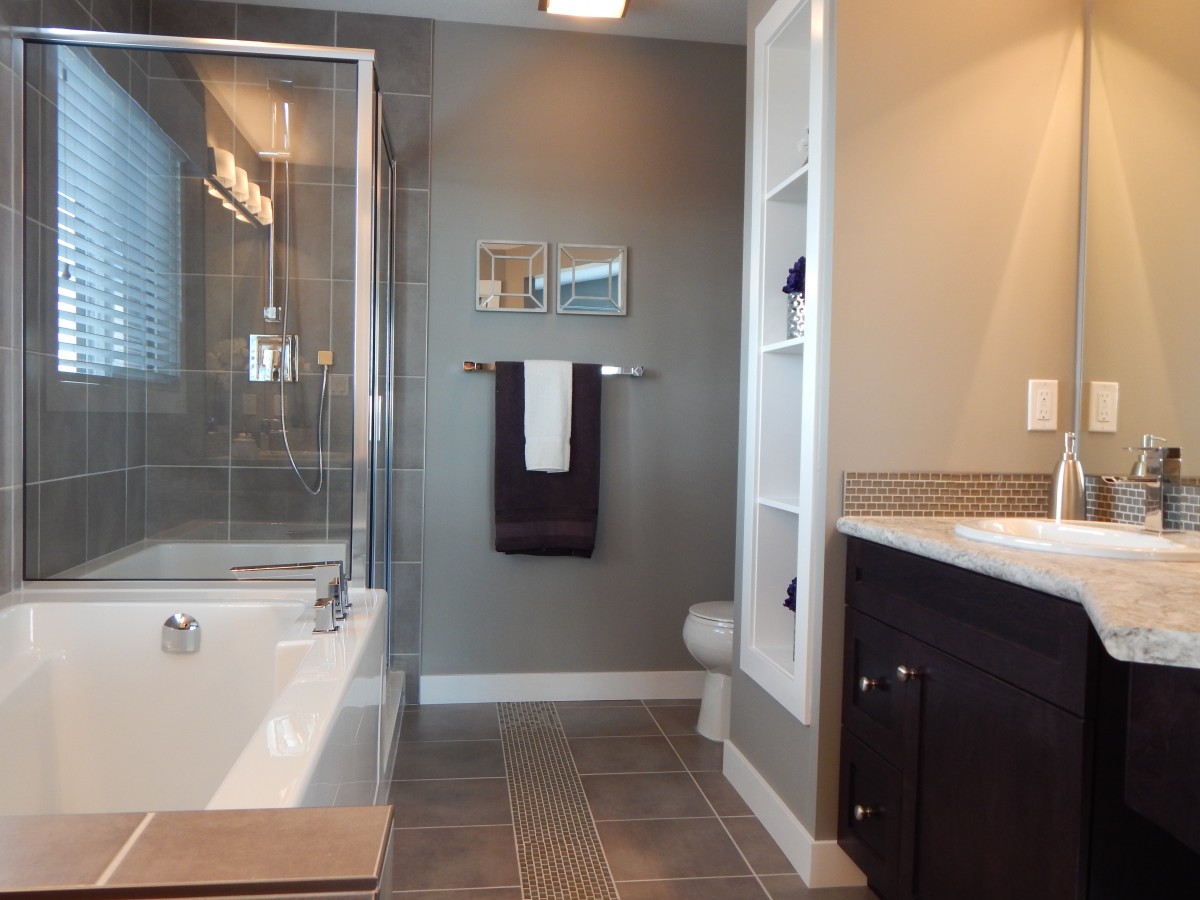
You can decorate the shower walls with the same materials as the floor, such as concrete, mosaic, or stone. However, the choice is more expansive.
Shower walls
To tile your walls, you can choose between full-body porcelain stoneware and glazed porcelain stoneware; more elegant, which can imitate stone or terracotta. It is also effortless to maintain.
Note: on the wall, a class E tile guarantees optimal resistance to ambient humidity and splashes.
Another possibility is earthenware. It is made of terracotta tiles covered with several layers of enamel and comes in many colors and shades but is very sensitive to impact.
There is also tadelakt, a waterproof coating made of lime and natural pigments from Morocco. It is water-resistant and maintained with a solution of water and black soap.
Or acrylic paint, waterproof and water-repellent, easily applicable although two layers, and particularly easy to maintain.
Shower enclosures
In the form of walls, straight or curved, mobile or fixed, shower partitions can be solid or transparent.
Transparent
They can be made of glass, from 3 to 8 mm thick, but always of safety glass so that in the event of breakage, it does not produce shards that could cause injury. This glass can be transparent or granite, silk-screened, etc.
You can also opt for shower enclosures made of synthetic material (acrylic, PVC): they are less expensive and lighter but less durable.
Tip: To facilitate the maintenance of your shower’s glass panels and limit traces of limescale, use a rubber scraper after each shower and descale regularly. White vinegar is excellent for this.
Shower enclosures can be made of glass blocks composed of two thick blocks of glass that are hot-welded together and are perfect for letting in light while maintaining privacy.
But they can also be made of waterproof or cement-based plasterboard, which is screwed onto a metal or wooden frame. You can install these enclosures quickly and without significant work.
Another possibility is rigid foam panels made of extruded, reinforced, and waterproof polystyrene, which can also be used for a tiling tray.
Or cellular concrete bricks, very light and easy to cut with a simple saw, which can be tiled or even drilled to integrate glass bricks.
Read more: How to Choose Your Shower Tray?
Shower materials: where to buy
You will find shower materials in DIY stores, specialized stores, and on the Internet. We did not put you the prices of different materials because currently, in this period of crisis, prices are crazy everywhere …
Do not forget to leave us your comments below.

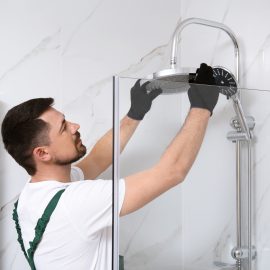
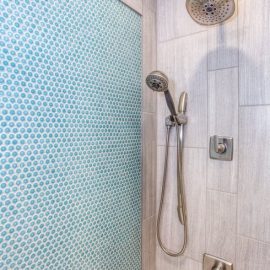
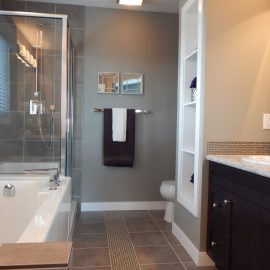
Pingback:Debunking Top 3 Worst Myths About Plumbing - Pipesandwrenches